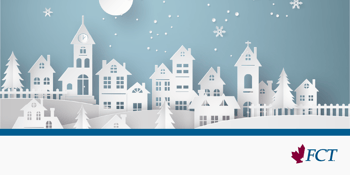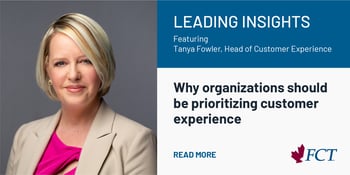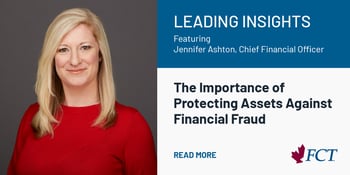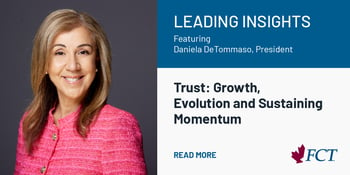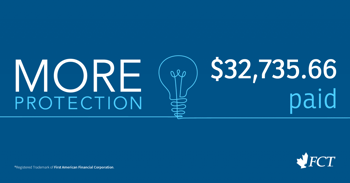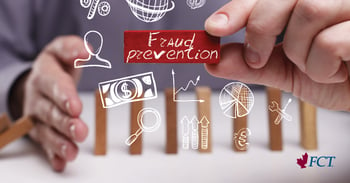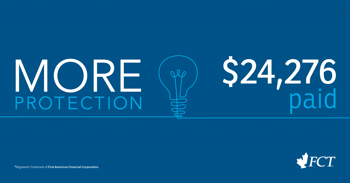
Did you know that 56,352 Canadians fell victim to fraud in 2022? As we bundle up to end the year, fraudsters are just getting started—stay on the lookout for these three scams this holiday season:
Charity fraud
December brings a significant uptick in charitable giving, with as much as a third of the year’s donations coming in during the holidays.
Fraudsters capitalize on holiday-season donations in two main ways. They might pretend to be associated with a legitimate charity; they will often use guilt and other strong emotional tactics to pressure targets into donating on the spot. The other method is inventing a charity or cause; this can take the form of email, calls or even fake crowdfunding campaigns.
In both cases, your donation goes straight to the scammer, along with any personal or banking information you give them.
Best practices to help protect against charity fraud:
- Never give any banking or personal information to someone reaching out to you and claiming to represent a charity.
- Use Canada Revenue Agency’s list of registered charities to verify an organization’s status before you donate.
- When you donate, always reach out to the charity yourself to do it, either through their hotline or on their website.
Gift card fraud
Gift cards have become an important resource for scammers because they are so hard to trace. But even gift cards you buy for someone on your shopping list can be the bait for fraud.
Because online shopping is now such a big part of most companies’ business, they will accept gift card payments with just the number on the back and Personal Identification Number (PIN).
Fraudsters can copy these numbers from a card that hasn’t been sold yet, then keep checking online to see when it’s activated. When it gets bought, the fraudster just uses the gift code and PIN to make purchases, draining the card’s balance before its owner has a chance to use it.
Many stores try to prevent this with packaging around prepaid gift cards or scratch-off covers on the PINs. But criminals can still get past these measures by opening packaging then resealing it, or putting a sticker back over the PIN after scratching off the covering.
Best practices to help protect against gift card fraud:
- Always inspect the packaging on any prepaid card carefully. If possible, have the cashier open the package to verify that it or the card hasn’t been tampered with.
- Check the back of any gift card you buy, even non-prepaid cards. If the scratch-off portion is missing or looks different than the other cards, don’t buy the card.
- Don’t just look for obvious signs of tampering. Gift card scammers use precision in opening packages and getting PINs. Be suspicious, and if anything about a card looks off, give it to the cashier and select another.
Title fraud
Title fraud is when a criminal steals your identity and forges documents in order to obtain a fraudulent mortgage in your name. Then, they can walk away with the proceeds or even sell your home out from under you. When this happens, the legal fees to regain the title to your own property can be in the tens of thousands.
Lending and legal professionals keep a vigilant eye out for fraud, but criminals are persistent, often choosing to wait until a firm is busiest—at end-of-month, especially the holiday season.
Best practices to help protect against title fraud:
- Protect your identity at all times. Keep any documents with personal information in a secured place, and shred them as soon as you’re done with them.
- Always speak with a trusted legal professional before giving anyone the rights to deal with your assets. They can act as a valuable second set of eyes.
- Get a title insurance policy if you own or buy a home. It lasts as long as your ownership does, and if it’s from FCT, it will protect against future title fraud. Title insurance covers numerous costly title and off-title risks that come with property ownership, for a low one-time premium. Protect yourself against title fraud and other risks with a homeowner’s title insurance policy from FCT.
Keeping a step ahead of fraud takes vigilance and a willingness to say “no” if something doesn’t feel right and someone’s pressuring you. Stay aware of the latest scams, and you can keep this year’s holiday season fraudsters out in the cold.
Insurance by FCT Insurance Company Ltd. Services by First Canadian Title Company Limited. The services company does not provide insurance products. This material is intended to provide general information only. For specific coverage and exclusions, refer to the applicable policy. Copies are available upon request. Some products/services may vary by province. Prices and products/services offered are subject to change without notice.
®Registered Trademark of First American Financial Corporation.






































